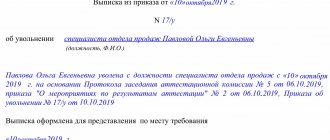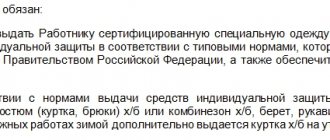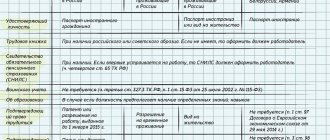2 comments
573
7 min.
Many employers require a candidate for a position to fill out a questionnaire during an interview. This condition is in most cases optional for the applicant, but is highly desirable. The applicant may feel that the questionnaire duplicates the resume, and that it is unnecessary to provide it. Using a questionnaire, the employer gets to know the future employee. Based on the results, the manager determines the feasibility of conducting a further interview. The questionnaire will reveal some important details, such as the level of literacy, accuracy, attentiveness, and so on.
What are the purposes of the survey?
Both employees and future candidates often underestimate the opportunities that a competent survey provides. Thanks to this procedure, it becomes easier to resolve a number of issues of strategic importance.
Applicants can find out in advance what the main tasks and goals of the enterprise itself are before applying for a job. Many questions hide the meaning of a specific position or the entire enterprise as a whole.
Some managers like creative people and ideas. Others strive to find good performers who are not used to deviating from the proposed standards.
Questionnaires for managers and HR department employees allow you to immediately obtain all the important information regarding candidates. The data is then kept at hand. The answers to the questions will tell you which points require clarification.
Based on the questionnaire, personal files are often compiled, which also facilitate record keeping and systematization of information.
Staff psychologists often conduct additional analysis based on completed questionnaires. They evaluate not only the answers given, but also the handwriting used. This step is justified, since it will allow us to evaluate the internal reserves that applicants have to solve certain specific problems. This makes it easier to identify the ability to work alone or in a team.
How to fill it out correctly
The document is written by hand, so you should read the questions before filling it out. This will help you compose the questionnaire accurately, without errors or corrections. Points are sometimes duplicated so that the employer can check for inconsistencies in the information provided by the applicant. You can ask the company representative if it would be appropriate to refer to the resume with the note “see. resume" in situations where identical information is provided.
Sample of filling out a job application form in MS Word format.
You cannot leave blank spaces; if the answer is negative, then the words “I don’t” and “no” must be written. Otherwise, one gets the impression of ignorance, disdain for the requirements, and refusal to write. This characterizes a person as “conflicting”, “disloyal”, “non-executive”.
The following aspects should also be paid attention to:
- Methodical. It is especially necessary when working with documents and instruments. If the questionnaire contains tables for answers, then entries must be placed in the indicated columns, regardless of the size of the handwriting. You should not make notes on top of tabular columns.
- Attentiveness. Determined by the answers that need to be ranked. For example: rank your aspirations (1-getting an interesting job; 2-career; 3-good team; 4-high salary; 5-development). That is, 1,2,.. arrange according to the order of importance starting from priority (or vice versa). Here you should carefully read the questions, arrange all the points from 1 to 5. Such points especially apply to positions related to accounting, accounting, office work, and control.
- Punctuality. You should pay attention to the dates: completion, acceptance, dismissal from previous jobs. The absence of a corresponding entry is interpreted as “lack of punctuality,” because if the time factor is not important for a potential employee, then scrupulousness is unusual for him.
- Conflict. An experienced interviewer, having analyzed the spelling of the words “Yes”, “No”, and the degree of pressure when negating, will tell about the level of conflict of the applicant. For people with “pretensions”, the word “No” has more pressure and is larger in size than “Yes”.
- Criticality, categoricalness. You can also determine by the pressure on the rod when writing and by the size of the “checkmarks” opposite the correct answers. The clearer the pressure and the larger the size of the symbols, the more categorical and confident the applicant is in expressing his opinion.
- Leader or executor. The performer will clearly answer all points and give detailed answers to open questions (i.e. those that cannot be said “Yes” or “No”). The manager is recommended to interpret the facts a little, but not much, and deviate from the regulations.
- IQ level, learning ability. Analyzed by answers to logical constructions, as well as complex questions. For managers and knowledge workers, the ability to perceive a request and correctly formulate a conclusion that is understandable to the employer is important.
- Cultural level. Determined by spelling errors, punctuation marks, extended phrases, and train of thought. Written speech is more detailed than oral. Therefore, if the applicant expresses tongue-tiedness in writing, then what will his words be like when spoken out loud?
Who is responsible for compiling the questionnaires?
The development of the document is carried out by enterprise employees vested with appropriate powers. HR employees deal with such issues most often. But the document can be the result of coordinated work of representatives of several positions at once.
Who can take part:
- psychologists;
- lawyers;
- personnel officers;
- director.
These are the most common positions that are involved in drafting the document. Some companies use third-party contractors to write the questions.
One organization can develop several forms of questionnaires used when hiring. For example, it is acceptable to develop separate copies of the document for each vacancy. It doesn't matter who does the layout. Final approval is made only by the immediate supervisor.
Tricks when filling
Drawing up a questionnaire helps the employer not only evaluate the strengths and weaknesses of the interviewee. Reliable information about him helps to obtain psychological techniques.
The development of the document is entrusted to specialist psychologists in order to identify hidden facts and human capabilities. The more non-standard questions, the higher the chance of getting a true personal portrait of the candidate.
These points seem to be irrelevant, but nevertheless reveal the inner world more deeply:
- What are you interested in, your hobby.
- What kind of music do you like?
- Favorite books, films.
- Describe your friend's portrait, etc.
Often situational tasks are set, how the applicant would act in a given situation. It is impossible to write down an exact “solution” for similar questions, since the statements are individual. But you need to understand that, for example, creative answers are appropriate when looking for a creative job: as a computer game developer, designer, animator. And an accountant who “loves” to dream is of no interest to anyone.
The item: “Indicate three people who can recommend you” is also tricky. Firstly, the absence of recommenders causes concern; it is regarded as hiding negative information from previous places of work or “quarrelsomeness” in the team. Secondly, their number, the presence of at least three, indicates a balanced character.
What questions might be included?
Any form of application form for employment contains from 10 to 30 points. Questionnaires can be filled out using modern technologies. Here are some points:
- Indication of the full name of the applicant for the vacancy.
- Description of date and place of birth.
- Complete information on citizenship.
- Addresses according to actual registration and place where the citizen officially resides.
- Passport data.
- Education. Additional courses completed are also indicated.
- Military duty. Yes or no.
- Availability of a medical record.
- Labor activity over a certain period of time. Positions and responsibilities, the amount of remuneration for labor are described.
- Description of skills and abilities relevant to the professional field.
- Information about close relatives, marital status.
- Description of hobby.
- Sides of character: weak and strong.
- Requests regarding working conditions, remuneration.
- Driver license.
- Computer skills and foreign languages.
- Chronic diseases, if any.
- Recommendations from employers in the past.
What is a resume?
A resume is usually called a document that briefly summarizes facts about yourself that are important for getting a job. The word “resume” itself is translated from French as a biography, but for the employer it is important to present yourself and indicate your work experience, education, professional skills, abilities and personal qualities.
In general, the document should characterize you as a person interested in obtaining a vacancy. Therefore, you should not overload with unnecessary information.
A new job, a new profession is always a challenge to yourself, a step towards self-development and gaining knowledge and experience. There is no need to be afraid if you have no work experience. When launching a new project, an employer can target novice specialists who are ready to develop and work hard. Show your strengths in your resume, indicate your expectations and willingness to work.
Adding a cover letter to your resume is a plus.
Is there a set form?
There is no strict form of the document. We recommend using ready-made template forms and finding a sample on our website. If you have your own example, then follow the rules that will make your resume more presentable. Next, we’ll tell you how to write a resume that sells so that you’ll be invited to an interview.
Tips for writing a questionnaire correctly
A convenient option is to group questions depending on the topic. Then the work of both parties is simplified.
The optimal solution is to divide the questionnaire into two parts. The first will be presented with questions of a general nature, and the second with a narrow specialty. This will make it easier to develop a form for large-scale enterprises. The first part has a general appearance, regardless of the specific workshop or direction.
First there are standard items devoted to the citizen’s personal and passport information. Here he can write about criminal records and attitudes towards military service. Next, it is recommended to move on to education. Description of theoretical training includes:
- Indication of educational institutions where training was conducted. It is necessary to specify the year of education, the result in the form of an assigned qualification, and the number of diplomas. If necessary, documents are checked.
- Conferences and master classes, seminars along with advanced training courses.
- Foreign language learning degree.
The last point, if necessary, is checked during the interview if it is important for the position held.
Why fill out a job application?
Having taken a couple of copies of your resume with you to the interview and prepared for possible questions, you are unlikely to expect that the HR manager will hand you a questionnaire to fill out. Why a questionnaire if you have a resume?
The questionnaire for applicants can be from 1 to 6 pages; it contains standard questions from the employer that will allow you to obtain basic and additional information about you. The questionnaire does not oblige the employer to hire you. But failure to fill it out may completely close the doors to this company for you.
In addition to the HR manager, your questionnaire may end up in the hands of the head of the department, the director of the company, and the security service to verify the specified information. The application form can be considered your first step towards getting a job.
Why is the questionnaire needed?
Essentially, the questionnaire simplifies the candidate assessment process. Information about the applicant becomes more consistent and complete. A resume is a way to get an interview. Relatives, friends or acquaintances may have helped you in compiling your resume; you may have deliberately omitted to indicate some points: age, marital status, presence of small children, etc.
Therefore, the questionnaire can be more objective and can facilitate the interview process. It contains a list of mandatory questions that are required by the employer. Also, based on the questionnaire, the employer can evaluate the candidate’s attentiveness, literacy, emotional state and interest in the job.
What should you take with you?
To fill out a questionnaire, a standard set of documents is often required:
- passport or other identity document;
- employment history
- military registration documents if you are liable for military service;
- education documents
- other documents, depending on the type of activity (medical record, driver’s license, etc.).
What questions are there in the questionnaires?
There can be an infinite number of options for questionnaires, but in most cases the main questions in them are the same, the only difference is in the additional information that the company compiles individually for itself.
General information:
- the vacancy you are interested in;
- passport details;
- education;
- work activity;
- data on military service;
- having a criminal record.
Additional Information:
- PC proficiency level;
- availability of necessary professional skills;
- having a driver's license and a car;
- presence of the business itself;
- presence of friends or relatives working for competitors;
- health information;
- hobbies and hobbies;
- plans for personal and career growth;
- wishes for the place of work.
Can I not answer some questions or refuse to fill out the questionnaire?
If for objective reasons you do not want to answer some questions, you can skip them and continue filling out the questionnaire. But keep in mind that during the interview you will still be asked these questions and will definitely ask why you did not answer them in the questionnaire. The employer may consider this as an assessment of your performance.
Under no circumstances should you skip questions about your work history and experience. On the contrary, you should try to reveal them as fully as possible. We recommend that you provide the most accurate and truthful information possible.
The questionnaire is a primary selection tool.
Think of it as the door behind which the interview is located. It is better to show patience and attentiveness than to noisily sort things out and refuse to fill out the questionnaire. Source
About health and personal qualities
The manager himself decides whether to ask about health status. If stated incorrectly, interest can be regarded as an invasion of privacy.
The presence of chronic diseases and disabilities is important information that affects the responsibilities of subordinates and interaction with management. The main thing is to use tactful language.
The reason for going to court will be the illegal refusal of a citizen only because of physical limitations or deviations.
But questions about personal qualities are generally ineffective. More often they encounter negative assessments of candidates. People rarely like to delve into positive and negative qualities. In this sense, oral interviews are the best option.
What not to ask
The law does not allow the employer to include whatever he wants in the questionnaire. Topics related to religion, nationality, race, origin, financial status are not contained in any example of filling out a job application form, since these points are purely personal. If a candidate decides that he was rejected because of a different race, nationality or religion, considers this refusal as a violation of the equality of rights and freedoms of a citizen, remembers Article 136 of the Criminal Code of the Russian Federation or Article 64 of the Labor Code of the Russian Federation, then he will go to court. Winning such a case for an organization is neither easy nor cheap, so we recommend avoiding such topics during surveys and interviews.
Is there a standardized document form?
There are no clear standards for the form of the questionnaire and the rules for filling it out established by law. Separate mention can only be made of Form 4 - this is a document printed on a sheet or several sheets of A4 format, and includes several main blocks listed above.
Here you can find a free application form and a sample of how to fill it out.
In principle, it does not matter what format the sheets and in what form the employment application form is compiled on. It is much more important that it be informative, have a clear structure and provide maximum useful information about the candidate for the open vacancy.
What kind of document is this, what is it for?
The questionnaire is primarily needed for the employer.
If a resume when searching for a job is usually compiled by the applicant himself and includes as much information as possible in order to present himself as advantageously and fully as possible as a promising employee needed by the company, then the questionnaire contains more specific data. The employer himself determines what issues interest him and puts only them on the list in order to immediately separate out unnecessary information and clarify exactly those points that are of priority to him. By comparing the profiles of two or three applicants for the same vacancy, you can quickly weed out the least suitable candidates and choose exactly the person whose characteristics best meet the requirements.
It is not always needed specifically to familiarize yourself with the data and professional skills of the applicant. Sometimes filling out a questionnaire is purely formal; it is needed only as an information sheet that will be filed in the personal file of a future company employee.
Filling out the form is also useful for the applicant himself. Sometimes it happens that only after filling out all the fields of the questionnaire does it become clear whether the person really came to the company where he would like to work. The nature of the questions allows you to form a clear opinion about the ethical standards of the organization, requirements for employees, and the conditions that will be offered. It often happens that the applicant himself becomes convinced at this stage that the position does not suit him, and refuses the offered vacancy. Therefore, neglecting to read the questionnaire and fill it out is not recommended for both parties.
Does a questionnaire help when applying for a job?
Many people believe that filling out a questionnaire will provide more information than the applicant’s resume, and also that the information obtained from the questionnaire will be more reliable. But it is worth considering that the applicant, in any case, will try to give an answer that, in his opinion, will suit the future employer, and not strive to tell what really is, so no questionnaire will give you the most complete and reliable impression. In addition, by analyzing the questionnaire questions and their tone, the applicant himself can form an impression of the company and its corporate ethics.
ipinform.ru
Job wishes in the application form: what to write?
The purpose of the questionnaire when recruiting personnel is to make the right decision on the part of the employer :
- When compiling a questionnaire, he needs to understand what exactly he wants to know about the applicant in terms of his biographical data, education, work experience, hobbies, health, and so on;
- Taking into account the fact that the candidate will usually present professional information about himself in his resume, the questionnaire serves as a source of additional information. Whether or not to offer to fill it to a candidate for a position is up to the business and traditions of the “receiving” party;
- It is important to have a clear idea of what the organization needs to know about its future employee. Perhaps he must possess certain personal qualities in order to successfully discharge his future duties;
- Often the list of questions proposed to the candidate is based on the employer’s interest in his incentives and motives when choosing a future place of business: be it a high salary or the opportunity for self-realization, as well as a good moral climate in the team or the high prestige of the company.
By filling out the questionnaire, the applicant gains knowledge regarding the internal culture and relationships in the organization.
Examples of what can be written in “wishes” :
- Career objective. For example: “Sales Manager”
- Desired work schedule (type of employment). “Shifts 2 through 2,” “Weekdays only.”
- Salary. The salary for which you agree to work.










